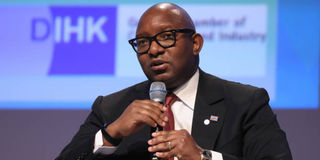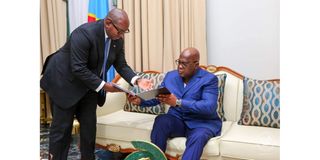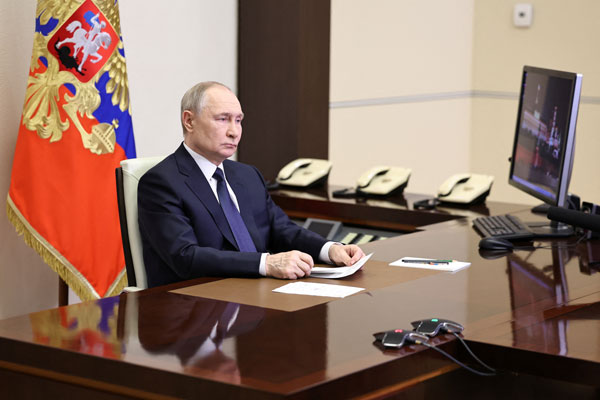DR Congo Prime Minister resigns, government is dissolved

Jean-Michel Sama Lukonde, Democratic Republic of Congo's prime minister, at the Group of 20 investment summit in Berlin, Germany, on Monday, Nov. 20, 2023. PHOTO |FILE
Congolese Prime Minister Jean-Michel Sama Lukonde resigned on Tuesday to focus on his parliamentary duties as an elected lawmaker.
He presented his resignation to President Félix Tshisekedi, according to an official statement.

Sama Lukonde, 46, has been in office for three years. He was appointed head of government on February 15, 2021 after the alliance between the coalition of former president Joseph Kabila and that of Félix Tshisekedi collapsed.
Lukonde's resignation effectively means that his entire government has now quit.
Lukonde was elected to parliament on December 20, 2023. He has stepped down as head of government to concentrate on his parliamentary duties.
It is a legal requirement in the Democratic Republic of Congo that serving ministers are not members of parliament, meaning that one has to choose between remaining a legislator or resigning to remain in government.
A total of 39 Congolese government ministers were recently elected to parliament. They will serve for the next 5 years. Earlier, the deputy prime minister in charge of the economy and the deputy prime minister in charge of the civil service tendered their resignations.
Félix Tshisekedi is preparing to form a new government to begin his second term.
However, some of the resigning ministers are likely to be part of the new team as they belong to the parliamentary majority, the coalition of President Félix Tshisekedi. They will have to resign as MPs.
Unlike in his first term, when he was forced to share power with Joseph Kabila's coalition, Tshisekedi is not expected to face strong opposition this time.
He is expected to win more than 400 of the 500 seats in the National Assembly. His rival Moïse Katumbi's party has barely twenty members, while Joseph Kabila's coalition boycotted the elections.
Martin Fayulu, who boycotted the elections, has no MPs. Fayulu had asked his members to boycott the elections. He had to change his decision, but without making up for the delay in the legislative elections.




